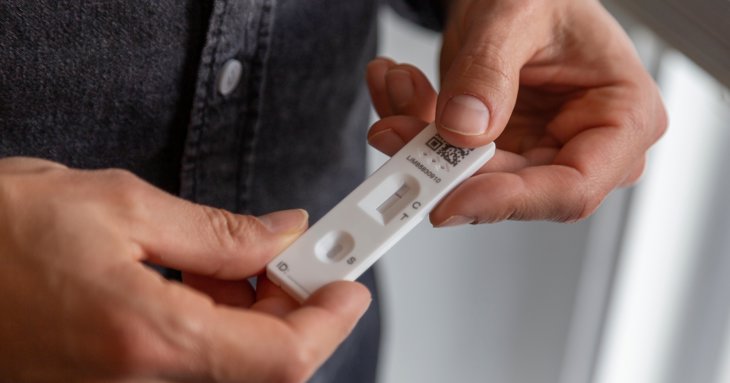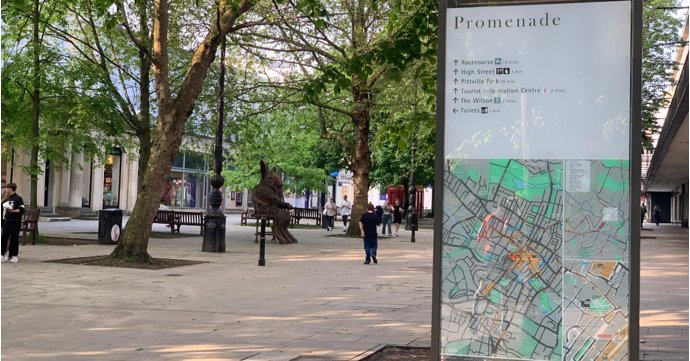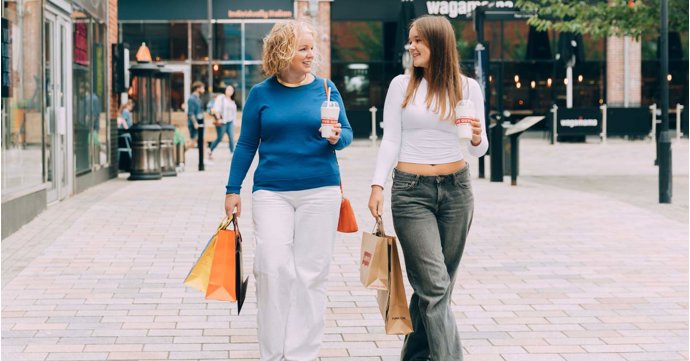With lockdown easing delayed until Monday 19 July 2021, in addition to getting vaccinated when offered, one of the best ways to stay safe and stop the spread of Covid-19 in Gloucestershire is to take regular, rapid lateral flow tests.
SoGlos spoke to Gloucestershire County Council to find out why regular testing is still so important – and how people in the county can get hold of Covid-19 test kits to use at home.
About the expert – Sarah Scott, executive director of adult social care and public health at Gloucestershire County Council
From sharing the very latest government guidance on Coronavirus to providing vital support and resources to people and businesses across the county, Gloucestershire County Council has been at the forefront of fighting the Covid-19 pandemic in Gloucestershire.
It is offering free, regular, rapid Covid testing to people who live and work in Gloucestershire through participating pharmacies and testing teams who are out and about.
Why do people need to get tested for Covid-19 if they don’t have any symptoms?
One in three people who get Covid-19 have no symptoms, which means that they could pass it on to friends or family without even knowing it, or they could pass it on to you. Regular rapid testing helps detect cases of Covid-19 that we might not otherwise have picked up – so quick action can be taken to stop the virus spreading.
Why is it recommended to get tested twice a week?
A rapid Covid-19 test tells you that you don’t have the virus on that day, but there is still a chance that symptoms of Covid-19 could appear in the days after testing. You should do a rapid test twice a week – every three to four days ideally – to have more chance of detecting the virus.
The more times the virus spreads from person to person, the more chance it has of mutating creating new variants like Delta, so we want to avoid this as much as possible.
If you do develop symptoms including a high temperature; new and continuous cough; or loss or change in sense of taste and smell, even after a negative rapid test, you should self-isolate at home immediately and book a PCR test at one of the county’s testing sites or at a mobile testing unit via the NHS portal.
Do people who have already been vaccinated still need to get tested regularly?
Even if you have been vaccinated, you should still take a rapid test regularly. The vaccination is our best chance of protecting ourselves from severe symptoms, but it doesn’t mean you can’t go on to catch and spread Covid-19. Vaccines offer important protection to reduce risk, but they don’t make you invincible.
Protection from any vaccine takes time to build up. In general, the older you are the longer it takes. It will take at least two weeks in younger people and at least three weeks in older people before you can expect to have a good antibody response.
The vaccination programme in Gloucestershire is doing amazingly well, but there are still people who haven’t got the jab yet. It’s also important that we get both doses of the vaccination.
The first dose of the Covid-19 vaccine offers a good level of protection against the virus, but for long-lasting and better protection a second vaccination is needed. When invited, please do get your second dose – as your vaccine has been allocated and will be waiting for you at the same centre where you received your first dose.
Covid-19 cases have been fairly low in Gloucestershire recently – so why is testing still so important?
We’re making good progress in our fight against Covid-19 but the recent increase in cases both locally and elsewhere in the country proves that Covid-19 hasn’t gone away. As we start to mix more, Covid-19 could be doing the same. Meeting outside is still the safest way to mix with more people, as the fresh air blows the virus particles away.
Understandably, the news of new variants will also be raising concern within communities so it’s important that we keep doing all we can to prevent the spread – now is not the time to let our guard down! Regular testing, getting vaccinated when invited, as well as following the rules around hands, face, space and fresh air remain just as important now as they did at the start of the pandemic.
What do the new Covid-19 variants mean for people in Gloucestershire?
Public Health England continues to monitor all variants closely and there is currently no evidence that this variant causes more severe illness. But, as with any positive case of Covid-19, contacts would be traced and told to test and self-isolate where appropriate.
Our advice to everyone remains the same. The best way to stop the spread of the virus is to keep washing or sanitising your hands, wear a face covering in public places, stay apart from those you don’t live with, and abide by the restrictions in place. Regardless of whether you have travelled recently, everyone is encouraged to take up the offer of twice weekly testing so that we can stop the spread of the virus.
Can people get rapid test kits to use from home?
You can now collect test kits from more than 100 community pharmacies across the county. You can find your nearest pharmacy by using the NHS Finder map on the Gloucestershire County Council website.
Also keep an eye out for the Rapid Testing Team who have been hitting the streets giving out testing kits – details of its whereabouts can be found on social media.
In the coming weeks some pharmacies will offer on site testing too, with the support of a trained pharmacist who can offer advice, handle the processing of the test and recording of results. The NHS finder map will be updated as new pharmacies come on board.
Always remember to record your results – positive or negative!
How accurate are these tests?
No test is 100 per cent accurate, but rapid tests are a handy tool to help prevent the spread of Covid-19.
Rapid testing alongside getting vaccinated and following hands, face, space and fresh air remain important.
If people test positive for Covid-19 on a rapid test, or start experiencing Covid-19 symptoms, how can they get tested?
If you test positive for Covid-19 through a rapid test, or you start experiencing symptoms, you should book a PCR test at one of the county’s testing sites or at a mobile testing unit via the NHS Portal and self-isolate at home.
Anyone who has been told to self-isolate because they have been in close contact with someone who has tested positive for Covid-19 are also recommended to get a PCR test, even if they don’t have symptoms – and even if the PCR test comes back negative, they should still self-isolate for the full 10 days.



















